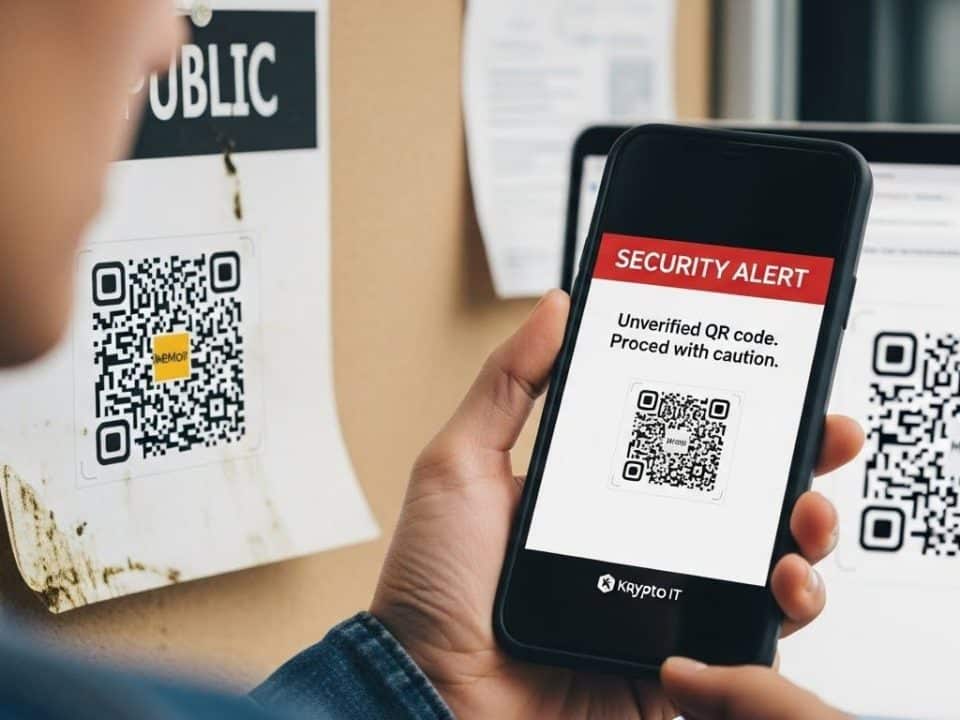
Beyond the Basics: What SMBs Need to Know
August 6, 2025
Navigating the Cloud: Securing a Hybrid World
August 9, 2025Protecting Your Houston Business from Modern Cyber Threats
In the competitive landscape of Houston’s business world, many Small and Medium-sized Businesses (SMBs) prioritize functionality and cost-effectiveness when setting up their network infrastructure. The mindset is often, “as long as it works, it’s good enough.” However, in today’s ever-evolving threat landscape, this approach is a recipe for disaster. A network designed primarily for convenience, without security as a foundational principle, is akin to building a house with flimsy walls and unlocked doors in a high-crime neighborhood.
For Houston SMBs, a security-first network design is no longer a luxury; it’s a necessity for survival. It means building your network from the ground up with security as the primary consideration, integrating robust defenses into every layer, and proactively anticipating potential threats. This approach goes far beyond simply installing a firewall and hoping for the best.
The Illusion of ‘Good Enough’ in Today’s Threat Climate
The “good enough” network often suffers from several critical security weaknesses:
- Flat Network Architecture: Devices and users are all on the same network segment, allowing attackers to move laterally with ease once they gain a foothold.
- Weak or Default Configurations: Network devices and applications are often left with default settings or weak passwords, providing easy entry points for cybercriminals.
- Lack of Segmentation: Critical assets and sensitive data are not isolated, meaning a breach in a less critical area can quickly compromise everything.
- Insufficient Access Controls: Employees may have broader access to network resources than their roles require, increasing the risk of insider threats (both malicious and accidental).
- Reactive Security Measures: Security is often an afterthought, bolted on as a response to incidents rather than proactively built-in.
- Outdated Equipment and Software: Neglecting regular updates and failing to replace end-of-life hardware leaves known vulnerabilities unaddressed.
In the face of sophisticated ransomware attacks, Business Email Compromise (BEC) scams targeting Houston businesses, and the ever-present threat of data breaches, a “good enough” network simply isn’t enough to protect your valuable assets, customer data, and business continuity.
Principles of a Security-First Network Design for Houston SMBs
Building a security-first network requires a shift in mindset and a commitment to integrating security into every aspect of your infrastructure. Here are key principles to guide your approach in Houston:
- Defense in Depth (Layered Security): Implement multiple security controls at different layers of your network. If one layer fails, others are in place to provide protection. This includes firewalls, intrusion detection/prevention systems (IDS/IPS), endpoint security, email filtering, and web security.
- Network Segmentation: Divide your network into isolated zones based on function and sensitivity (e.g., guest Wi-Fi, employee workstations, servers, IoT devices). Control traffic flow between these segments using firewalls and access control lists. This limits the impact of a breach and prevents lateral movement.
- Zero Trust Architecture: Operate under the assumption that no user or device is inherently trustworthy, even if they are inside your network. Implement strict identity verification, least privilege access, and continuous monitoring for all users and devices attempting to access network resources. This is particularly important for Houston’s growing remote and hybrid workforces.
- Strong Authentication and Authorization: Enforce strong, unique passwords and Multi-Factor Authentication (MFA) for all user accounts and administrative access to network devices. Implement role-based access control (RBAC) to ensure users only have the permissions they need to perform their jobs.
- Regular Patch Management: Establish a rigorous process for promptly patching operating systems, applications, and network device firmware to address known security vulnerabilities. This is a critical, yet often overlooked, aspect of network security for Houston SMBs.
- Secure Configuration Management: Harden the configurations of all network devices and applications by disabling unnecessary services, changing default passwords, and following security best practices.
- Comprehensive Logging and Monitoring: Implement robust logging and monitoring solutions to track network traffic, user activity, and system events. Analyze these logs for suspicious patterns or anomalies that could indicate a security incident. Consider a Security Information and Event Management (SIEM) system for centralized log analysis and alerting.
- Secure Remote Access: If your Houston employees need to access the network remotely, implement secure VPN (Virtual Private Network) connections with strong authentication and encryption. Avoid using insecure protocols like RDP directly exposed to the internet.
- Regular Security Assessments and Penetration Testing: Conduct periodic vulnerability scans and penetration testing to identify weaknesses in your network design and security controls. This helps you proactively address potential issues before they can be exploited by attackers.
- Security Awareness Training: Educate your Houston employees about common cyber threats, such as phishing, social engineering, and ransomware. Train them on how to identify and report suspicious activity and reinforce secure password practices and data handling procedures.
Building a Security-First Network in Houston: Where to Start
For Houston SMBs looking to move beyond “good enough” and embrace a security-first network design, here are some initial steps:
- Assess Your Current Network: Understand your existing infrastructure, identify potential vulnerabilities, and document your network topology.
- Prioritize Critical Assets: Determine your most valuable data and systems that require the highest level of protection.
- Implement Basic Segmentation: Start by separating guest Wi-Fi and implementing VLANs for different user groups and device types.
- Enforce MFA: Deploy MFA for all email and critical application access.
- Improve Patch Management: Establish a schedule for regularly patching your systems.
- Consider Managed Security Services: Partner with a trusted Managed Service Provider (MSP) like Krypto IT, based right here in Houston, who specializes in security-first network design and management. We can provide the expertise and resources needed to build and maintain a secure network tailored to your specific needs and budget.
Krypto IT: Your Partner in Secure Network Design in Houston
In today’s threat landscape, a reactive, “good enough” approach to network security is simply not sustainable for Houston SMBs. A security-first network design is a proactive investment that will protect your business from costly cyberattacks, ensure business continuity, and build trust with your customers. Krypto IT is committed to helping Houston businesses build robust and secure network infrastructures that go beyond the basics.
Don’t wait for a security incident to realize your network wasn’t “good enough.”
Contact Krypto IT today for a free consultation and let us help you design a security-first network that will safeguard your Houston business for the future.




